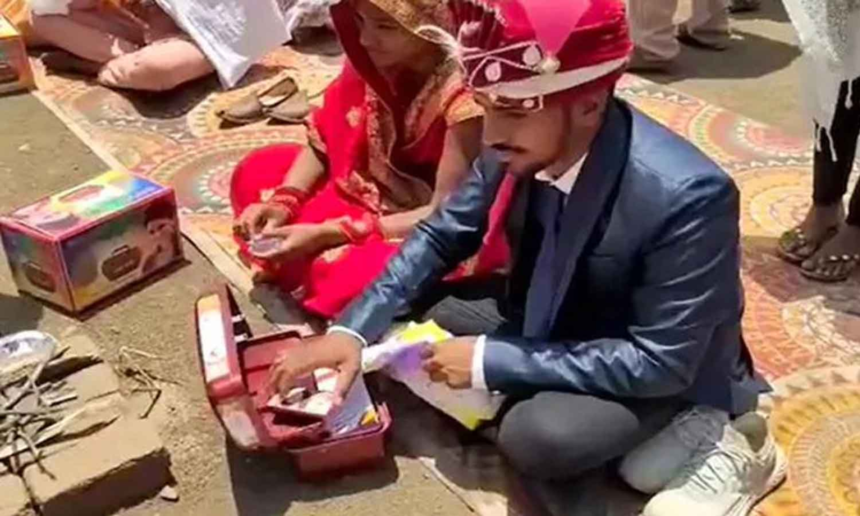Controversy arose at a mass wedding event in Madhya Pradesh’s Jhabua district when condoms and contraceptive pills were discovered inside make-up boxes distributed to brides. The event was organized as part of Chief Minister Shivraj Singh Chouhan’s Mukhyamantri Kanya Vivah/Nikah Yojana, a scheme aimed at supporting women from economically weaker sections. A total of 296 couples were wedded at the event, and contraceptives were provided to the newlyweds under the scheme.
Bhursingh Rawat, a senior district official, attributed the distribution of condoms and contraceptive pills to the state health department, suggesting that health officials might have included them as part of a family planning awareness program. He clarified that the responsibility of the district administration was limited to transferring fundbeneficiariesiciaries’ bank accounts and providing basic amenities such as food, water, and tents for the event. Rawat claimed to have been unaware of the contents of the packets that were distributed.
The Mukhyamantri Kanya Vivah/Nikah Yojana was launched by the Madhya Pradesh government in April 2006 to financially assist the weddings of women from economically disadvantaged backgrounds. Under this scheme, the government provides a sum of ₹55,000 to the bride’s family. However, this incident is not the first time the scheme has faced controversy. In a recent event in the Gadsarai area of Dindori, brides were subjected to pregnancy tests, leading to criticism and concerns about privacy and dignity. One woman who tested positive stated that she had been living with her fiancé before the wedding.
The chief medical officer of Dindori clarified that the tests conducted at mass wedding events are typically intended to verify the age of the bride and groom, screen for sickle cell anemia, and ensure their physical fitness. However, these incidents highlight the need for clearer guidelines and protocols to ensure the respectful and sensitive implementation of such schemes.
The distribution of condoms and contraceptive pills at the mass wedding event has sparked debate and raised questions about the appropriateness of including them in the make-up boxes. The authorities need to investigate how such items were included and ensure that future events prioritize the privacy and dignity of the participants. Transparent communication and adherence to established guidelines will be crucial in rebuilding trust and ensuring that government schemes intended to support vulnerable sections of society are implemented effectively.
